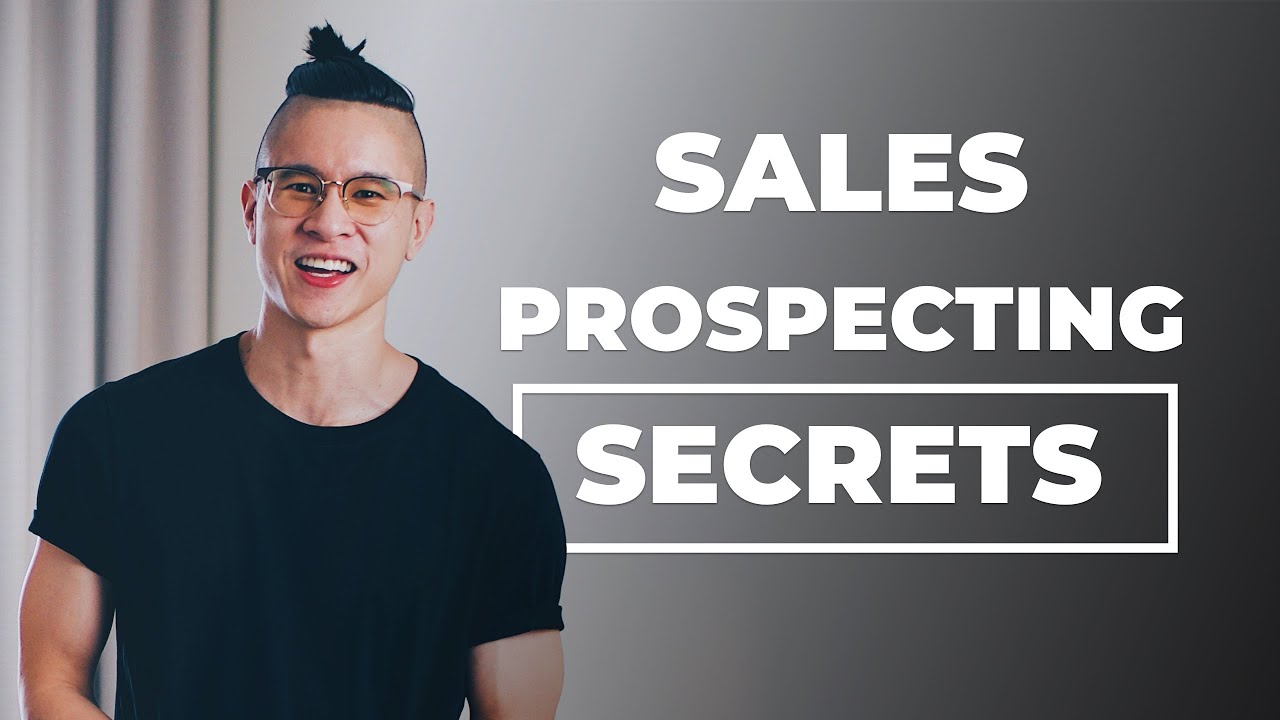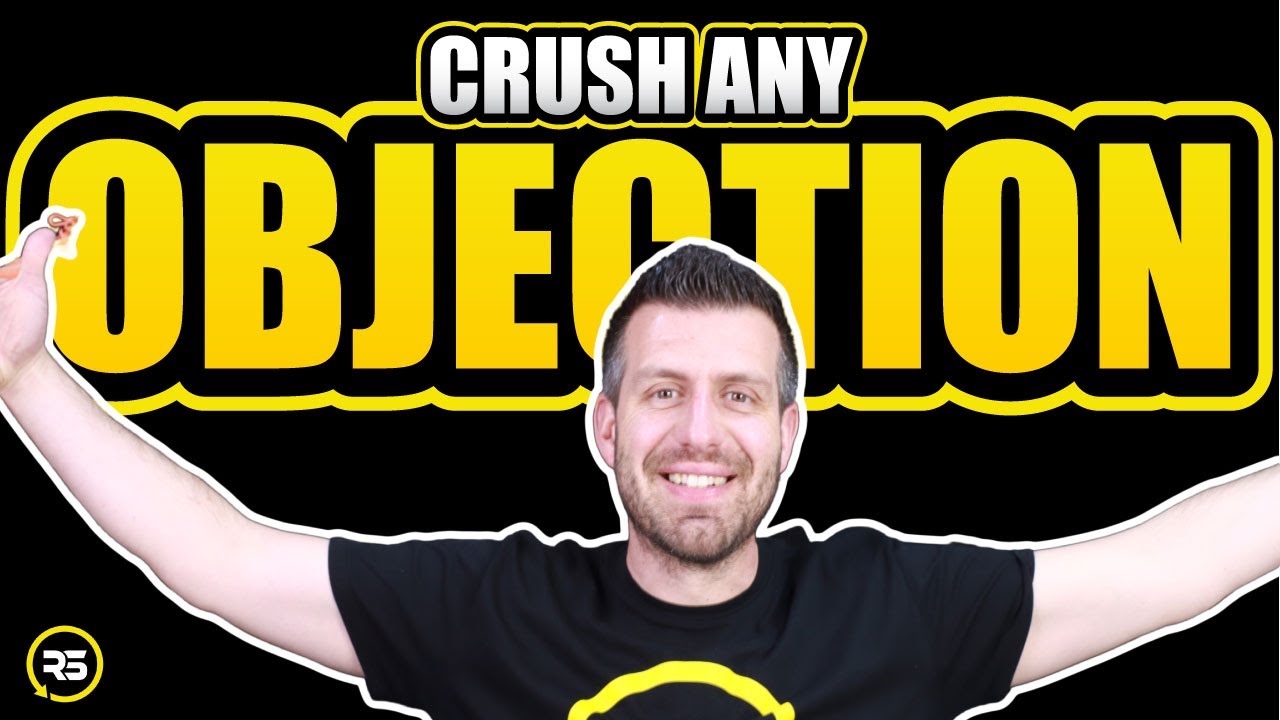Sales Objections and How To Overcome Them - 3 Sales Tips For Overcoming Objections in Sales
Summary
TLDRIn this sales training video, Patrick Dang introduces a three-step framework to effectively handle objections in any sales scenario. The approach emphasizes developing the right mindset, empathizing with the prospect, seeking truth, making them feel heard, and offering a new perspective to overcome sales hurdles. Dang's method not only accelerates the sales process but also enhances everyday communication by fostering understanding and trust.
Takeaways
- 😀 Develop a genuine mindset when handling objections to avoid sounding inauthentic or robotic.
- 🤝 Approach sales objections as a conversation rather than a fight to prevent coming off as too aggressive.
- 🔍 Understand that objections are reasons a prospect is not ready to buy, and your role is to remove these blockers.
- 👂 Empathize with the prospect to show you understand their position and feelings before addressing their concerns.
- 🔑 Use questions to uncover the truth behind an objection and avoid making assumptions about their reasoning.
- 🗣️ Make the prospect feel heard by summarizing their concerns and showing active listening.
- 👥 Share examples of past clients who faced similar situations to build credibility and rapport.
- 💡 Offer a new perspective to the prospect without making them feel wrong, encouraging them to see the value in your offering.
- 💼 Frame the purchase as an investment rather than an expense, highlighting potential ROI to shift their viewpoint.
- 🔄 Use the three-step framework of empathy, making the prospect feel heard, and offering a new perspective to handle objections in various life situations, not just sales.
- 📈 Apply these communication skills to improve the quality of interactions and potentially close more deals in sales.
Q & A
What is the main purpose of the video by Patrick Dang?
-The main purpose of the video is to introduce a three-step framework to handle sales objections effectively, regardless of the product, service, or industry.
Why is it important to develop the right mindset when handling objections in sales?
-Developing the right mindset is important because it helps to avoid coming across as fake or inauthentic, which can erode trust with the customer.
How should a salesperson approach objections if they view sales as a fight?
-Instead of viewing objections as a fight, a salesperson should approach them as a conversation with the prospect, aiming to understand if working together makes sense.
What is the significance of not being frustrated when handling objections?
-Not being frustrated allows the salesperson to maintain a positive interaction, listen effectively, and address the prospect's concerns more constructively.
Why is it crucial to empathize with the prospect when they raise an objection?
-Empathizing with the prospect helps to build rapport and trust, showing that the salesperson understands their perspective and is not just focused on making a sale.
What is the role of asking questions when a prospect says they need to consult with someone else?
-Asking questions helps to uncover the truth behind the objection, allowing the salesperson to address specific concerns and provide relevant information before the prospect consults with others.
How can summarizing and repeating back what the prospect said make them feel heard?
-Summarizing and repeating the prospect's concerns back to them demonstrates active listening and understanding, which can make the prospect feel valued and heard.
What is the benefit of offering a new perspective to the prospect after understanding their objection?
-Offering a new perspective can help the prospect see the value in the product or service from a different angle, potentially overcoming their initial objection.
Why is it better to show a new perspective rather than telling the prospect they are wrong?
-Showing a new perspective respects the prospect's viewpoint and encourages them to consider alternative ideas, whereas telling them they are wrong can damage trust and the sales relationship.
How can the three-step framework be applied beyond sales to improve everyday communication?
-The framework can be applied in everyday life by empathizing with others' viewpoints, ensuring they feel heard, and offering new perspectives to facilitate better understanding and communication.
What action does Patrick Dang encourage viewers to take after watching the video?
-Patrick Dang encourages viewers to like the video, subscribe for new sales training videos, hit the notification bell, and leave their number one sales challenge in the comments for future video content.
Outlines

This section is available to paid users only. Please upgrade to access this part.
Upgrade NowMindmap

This section is available to paid users only. Please upgrade to access this part.
Upgrade NowKeywords

This section is available to paid users only. Please upgrade to access this part.
Upgrade NowHighlights

This section is available to paid users only. Please upgrade to access this part.
Upgrade NowTranscripts

This section is available to paid users only. Please upgrade to access this part.
Upgrade NowBrowse More Related Video

How To Overcome Any Sales Objections - Best Sales Objection Handling Techniques

B2B Sales Prospecting - Qualify Prospects with BANT (Budget, Authority, Need, & Time)

Sell Me This Pen - How To Sell Anything to Anyone - Best Answer

How to Handle The 4 MOST Common Real Estate Seller Objections

2024 09 05 09 56 38

SaaS Sales Funnel - 5 Strategies To Selling SaaS (Software as a Service)
5.0 / 5 (0 votes)